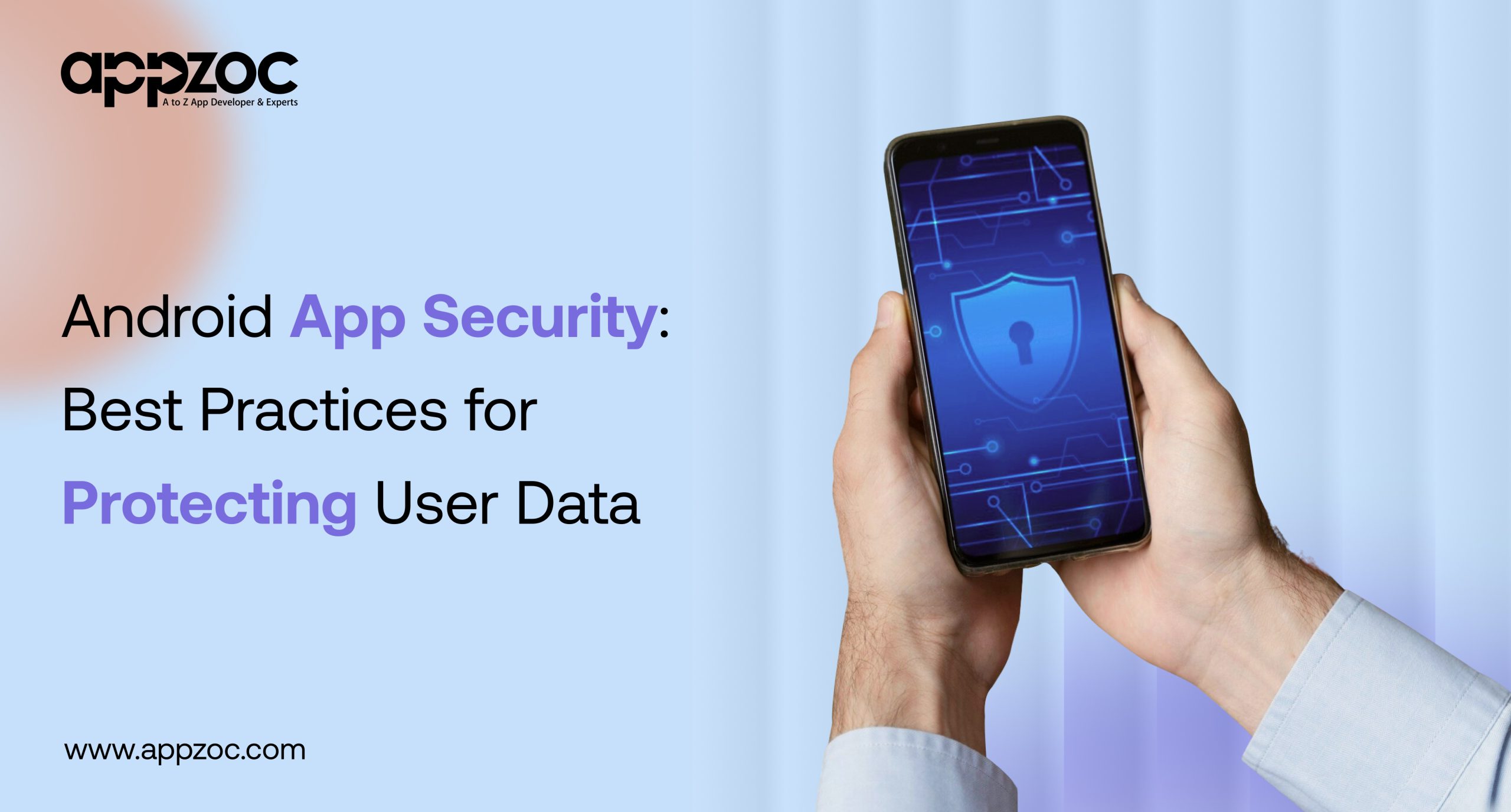
Flutter
Make the most of this cutting-edge technology by developing apps quickly! Our Flutter solutions have amazing features that can be used to create sleek, high-performance apps that can scale seamlessly across platforms.

We are living in a generation where mobile phones have become a habit. This has become an integral part of our lives. In the present generation, humans have started relying more on mobile phones. From online shopping and banking to social networking and more productive tools, mobile apps have a plethora of sensitive user data.
In today’s digital age, protecting user data is as essential as securing essential belongings. App security has thus become a major priority, especially for Android applications. With the widespread adoption of Android, there has been an increase in cyber-attacks and data breaches. It has become the greatest challenge to protect user data, also implement robust security measures to safeguard sensitive information.
For businesses looking for an Android app development company in Kochi or partnering with mobile application development companies in Kerala ensuring robust security is not just a necessity but also a responsibility. Through this blog, let’s explore the best practices for protecting user data and maintaining the integrity of Android app security.
Secured data storage
Strong authentication mechanisms
HTTPS for secure communication
Regular security updates and patch management
Secured APIs and Backend services
Data encryption
User education on security best practices
Understanding the app security and threat landscape
With the evolving digital landscape, Android has become a major target and a platform for cyber attacks. Android platforms are seen to have an increase in the number of cyber criminals due to their widespread use.
According to the studies it is found that there is an increase of 70% of Android users. Individuals are more into prioritizing Android than any other smartphone devices making them prime targets for malicious activities and data breaches. This includes unauthorized access to sensitive information, data leaks, cyber-attacks and identity theft. This data breach is a great challenge for many Android as well as iPhone app development companies in Kochi, Kerala. Therefore many developers adopt many security strategies to mitigate the risks effectively.
Best practices for protecting the User Data
Secured Data Storage:
Storing secured data is very essential in Android app development. As we develop an application, we ensure the data and the sensitive information are safeguarded from unauthorized access or any other kinds of data security breaches. Implementing secure data coding practices is essential and foundational for Android app development. For this, developers should avoid hard-coding sensitive information such as passwords or API keys directly and instead utilize the code-based security strategies provided by Android.
Strong Authentication Mechanisms:
To safeguard your application and enhance its data security, implementing strong authentication is crucial. Multi-factor authentication and biometric authentication are sure to build the security for the application. This adds an extra layer of security to the application. This is sure to reduce the risk of unauthorized access even if the user credentials are compromised.
HTTPS for Secure Communication:
Any communication between the app and the server must be encrypted to protect the sensitive information from being intercepted. This can be resolved with the use of hypertext transfer protocol which helps in ensuring the data transmitted over the network is encrypted and maintains user authentication and privacy, as well as the user identity.
Regular Security Updates and Patch Management:
Security threats have become very common and are seen as constantly evolving, and outdated software can be vulnerable to new exploits. This is where there is a need for regular security updates and patch management is essential to address the security vulnerabilities and thus, keeping your app protected against the latest threats.
Secured APIs and Backend services:
APIs are essential and they play the backbone of modern mobile applications, connecting the mobile applications with the servers and also with the other third party servers. Securing these APIs is essential for protecting the data from unauthorized access and data breaches.
Data Encryption:
Data encryption is essential in protecting the user data both in transit and at rest. Android provides several libraries for encryption including AES for high-level security.
User Education on Security Best Practices:
User education and awareness are crucial in mobile app security. Users should know about the app’s security passwords and safe practices such as creating strong passwords, avoiding public wifi for sensitive transactions and also keeping their applications updated. This is sure to build trust among the users thus enhancing the quality of the application too.
In conclusion, ensuring a safe and protective app is very important. By following these practices, from secure data storage and strong authentication to regular security updates and regular compliance, you can surely data encrypt your app by protecting and safeguarding against potential threats.